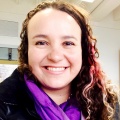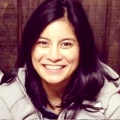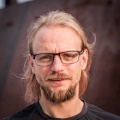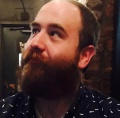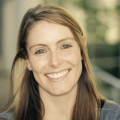| Please visit our ***NEW*** OBF/BOSC website: https://www.open-bio.org/ |
-
Difference between revisions of "BOSC 2016 Panel"
From Open Bioinformatics Foundation
(→Growing and sustaining open source communities) |
m |
||
| (5 intermediate revisions by 2 users not shown) | |||
| Line 7: | Line 7: | ||
|[[File:monica-munoz-torres.jpg|120px|left|Mónica Muñoz-Torres]] | |[[File:monica-munoz-torres.jpg|120px|left|Mónica Muñoz-Torres]] | ||
| − | |Panel chair '''Mónica Muñoz-Torres''' ([https://twitter.com/monimunozto @monimunozto]) is the lead | + | |Panel chair '''Mónica Muñoz-Torres''' ([https://twitter.com/monimunozto @monimunozto]) is the biocuration lead for Berkeley Bioinformatics Open-Source Projects (BBOP) at Lawrence Berkeley National Laboratory. She is part of the development teams for Apollo (a web-based annotation editor designed to support community-based curation of genomes) and the tools of the Gene Ontology (GO) Consortium. She leads the Community Curation group within the global initiative to sequence and annotate the genomes of 5,000 arthropods (i5K Initiative), and is a member of the Executive Committee of the International Society for Biocuration (ISB). As a graduate student, Monica founded the first Southeastern Chapter of the Society for Advancement of Hispanics/Chicanos and Native Americans in Science (SACNAS) at Clemson University; the chapter has since been actively involved in outreach activities to local high schools in an attempt to inspire students to pursue careers in STEM. |
|- | |- | ||
|[[File:abigail-mayes.jpg|120px|left|Abigail Cabunoc Mayes]] | |[[File:abigail-mayes.jpg|120px|left|Abigail Cabunoc Mayes]] | ||
|'''Abigail Cabunoc Mayes''' ([https://twitter.com/abbycabs @abbycabs]) is the Lead Developer of the [https://mozillascience.org/ Mozilla Science Lab], an initiative of the Mozilla Foundation working to make research collaborative, accessible and usable. She has led development on various open source science projects such as [https://badges.mozillascience.org/ Contributorship Badges for Science] and WormBase. Before joining Mozilla, Abby worked as a bioinformatics software developer at the Ontario Institute for Cancer Research and at Michigan State University. With a background in bioinformatics and computer science, she builds tools that use the web to move science forward. | |'''Abigail Cabunoc Mayes''' ([https://twitter.com/abbycabs @abbycabs]) is the Lead Developer of the [https://mozillascience.org/ Mozilla Science Lab], an initiative of the Mozilla Foundation working to make research collaborative, accessible and usable. She has led development on various open source science projects such as [https://badges.mozillascience.org/ Contributorship Badges for Science] and WormBase. Before joining Mozilla, Abby worked as a bioinformatics software developer at the Ontario Institute for Cancer Research and at Michigan State University. With a background in bioinformatics and computer science, she builds tools that use the web to move science forward. | ||
|- | |- | ||
| − | |[[File:bastian.jpg|120px| | + | |[[File:bastian.jpg|120px|left|Bastian Greshake]] |
|'''Bastian Greshake''' ([https://twitter.com/gedankenstuecke @gedankenstuecke]) is a biologist-turned-bioinformatician, currently working on his PhD in the Group for Applied Bioinformatics at the University of Frankfurt. When not doing research in fungal genomics he's also an open* advocate. In 2011 he co-founded openSNP, a crowdsourced/citizen science open data project that puts personal genetics data into the public domain. Over the course of running openSNP he experienced the different sides of sustaining and growing a scientific open source project which is independent of traditional academic institutions. | |'''Bastian Greshake''' ([https://twitter.com/gedankenstuecke @gedankenstuecke]) is a biologist-turned-bioinformatician, currently working on his PhD in the Group for Applied Bioinformatics at the University of Frankfurt. When not doing research in fungal genomics he's also an open* advocate. In 2011 he co-founded openSNP, a crowdsourced/citizen science open data project that puts personal genetics data into the public domain. Over the course of running openSNP he experienced the different sides of sustaining and growing a scientific open source project which is independent of traditional academic institutions. | ||
|- | |- | ||
| − | |[[File:jamie-whitacre.jpg|120px| | + | |[[File:jamie-whitacre.jpg|120px|left|Jamie Whitacre]] |
| − | Jamie Whitacre is the technical project manager for Project Jupyter, which was born out of the IPython Notebook in 2014. Jupyter is a web application that allows users to perform exploratory data analysis and create and share documents that contain live code, equations, visualizations and explanatory text. Before joining Project Jupyter, Jamie worked with the Smithsonian’s National Museum of Natural History building out scientific workflows and databases for several genetics and genomics initiatives. Jamie works from the Berkeley Institute for Data Science and is an affiliate of the Lawrence Berkeley National Laboratory. | + | |'''Jamie Whitacre''' is the technical project manager for Project Jupyter, which was born out of the IPython Notebook in 2014. Jupyter is a web application that allows users to perform exploratory data analysis and create and share documents that contain live code, equations, visualizations and explanatory text. Before joining Project Jupyter, Jamie worked with the Smithsonian’s National Museum of Natural History building out scientific workflows and databases for several genetics and genomics initiatives. Jamie works from the Berkeley Institute for Data Science and is an affiliate of the Lawrence Berkeley National Laboratory. |
| + | |- | ||
| + | |[[File:john-chilton.jpg|120px|left|John Chilton]] | ||
| + | |'''John Chilton''' ([https://twitter.com/jmchilton @jmchilton]) is a software developer on the [https://galaxyproject.org/ Galaxy project] working at Penn State in the lab of Anton Nekrutenko. He has loudly pushed the Galaxy community toward increased openness by spearheading efforts such as the adoption of an [https://github.com/galaxyproject/galaxy/pull/314 open governance model] and a project [https://github.com/galaxyproject/galaxy/blob/dev/CODE_OF_CONDUCT.md code of conduct]. He is also one of the co-founders of the [http://www.commonwl.org/ Common Workflow Language]. | ||
|- | |- | ||
|[[File:natasha-wood.png|120px|left|Natasha Wood]] | |[[File:natasha-wood.png|120px|left|Natasha Wood]] | ||
| − | | '''Natasha Wood''' ([https://twitter.com/ | + | | '''Natasha Wood''' ([https://twitter.com/natasha_wood @natasha_wood]) is an NRF Research Career Award Fellow and lecturer in the Department of Integrative Biomedical Sciences at the University of Cape Town, South Africa. Her research includes molecular dynamics and evolutionary modelling of HIV structural and sequence data to better understand the interplay between the virus and host immune system. She promotes the development of the bioinformatics community through training initiatives, hackathons and more social platforms (as co-founder of the Cape Unseminars in Bioinformatics). |
|} | |} | ||
Latest revision as of 17:16, 27 May 2016
Growing and sustaining open source communities
Every year, BOSC includes a panel discussion that offers attendees the chance to engage in conversation with the panelists and each other. This year, our panel discussion will focus on how to grow and sustain open source communities, new or old, with different topics, goals, organizational structures and funding models.
| Panel chair Mónica Muñoz-Torres (@monimunozto) is the biocuration lead for Berkeley Bioinformatics Open-Source Projects (BBOP) at Lawrence Berkeley National Laboratory. She is part of the development teams for Apollo (a web-based annotation editor designed to support community-based curation of genomes) and the tools of the Gene Ontology (GO) Consortium. She leads the Community Curation group within the global initiative to sequence and annotate the genomes of 5,000 arthropods (i5K Initiative), and is a member of the Executive Committee of the International Society for Biocuration (ISB). As a graduate student, Monica founded the first Southeastern Chapter of the Society for Advancement of Hispanics/Chicanos and Native Americans in Science (SACNAS) at Clemson University; the chapter has since been actively involved in outreach activities to local high schools in an attempt to inspire students to pursue careers in STEM. | |
| Abigail Cabunoc Mayes (@abbycabs) is the Lead Developer of the Mozilla Science Lab, an initiative of the Mozilla Foundation working to make research collaborative, accessible and usable. She has led development on various open source science projects such as Contributorship Badges for Science and WormBase. Before joining Mozilla, Abby worked as a bioinformatics software developer at the Ontario Institute for Cancer Research and at Michigan State University. With a background in bioinformatics and computer science, she builds tools that use the web to move science forward. | |
| Bastian Greshake (@gedankenstuecke) is a biologist-turned-bioinformatician, currently working on his PhD in the Group for Applied Bioinformatics at the University of Frankfurt. When not doing research in fungal genomics he's also an open* advocate. In 2011 he co-founded openSNP, a crowdsourced/citizen science open data project that puts personal genetics data into the public domain. Over the course of running openSNP he experienced the different sides of sustaining and growing a scientific open source project which is independent of traditional academic institutions. | |
| Jamie Whitacre is the technical project manager for Project Jupyter, which was born out of the IPython Notebook in 2014. Jupyter is a web application that allows users to perform exploratory data analysis and create and share documents that contain live code, equations, visualizations and explanatory text. Before joining Project Jupyter, Jamie worked with the Smithsonian’s National Museum of Natural History building out scientific workflows and databases for several genetics and genomics initiatives. Jamie works from the Berkeley Institute for Data Science and is an affiliate of the Lawrence Berkeley National Laboratory. | |
| John Chilton (@jmchilton) is a software developer on the Galaxy project working at Penn State in the lab of Anton Nekrutenko. He has loudly pushed the Galaxy community toward increased openness by spearheading efforts such as the adoption of an open governance model and a project code of conduct. He is also one of the co-founders of the Common Workflow Language. | |
| Natasha Wood (@natasha_wood) is an NRF Research Career Award Fellow and lecturer in the Department of Integrative Biomedical Sciences at the University of Cape Town, South Africa. Her research includes molecular dynamics and evolutionary modelling of HIV structural and sequence data to better understand the interplay between the virus and host immune system. She promotes the development of the bioinformatics community through training initiatives, hackathons and more social platforms (as co-founder of the Cape Unseminars in Bioinformatics). |

